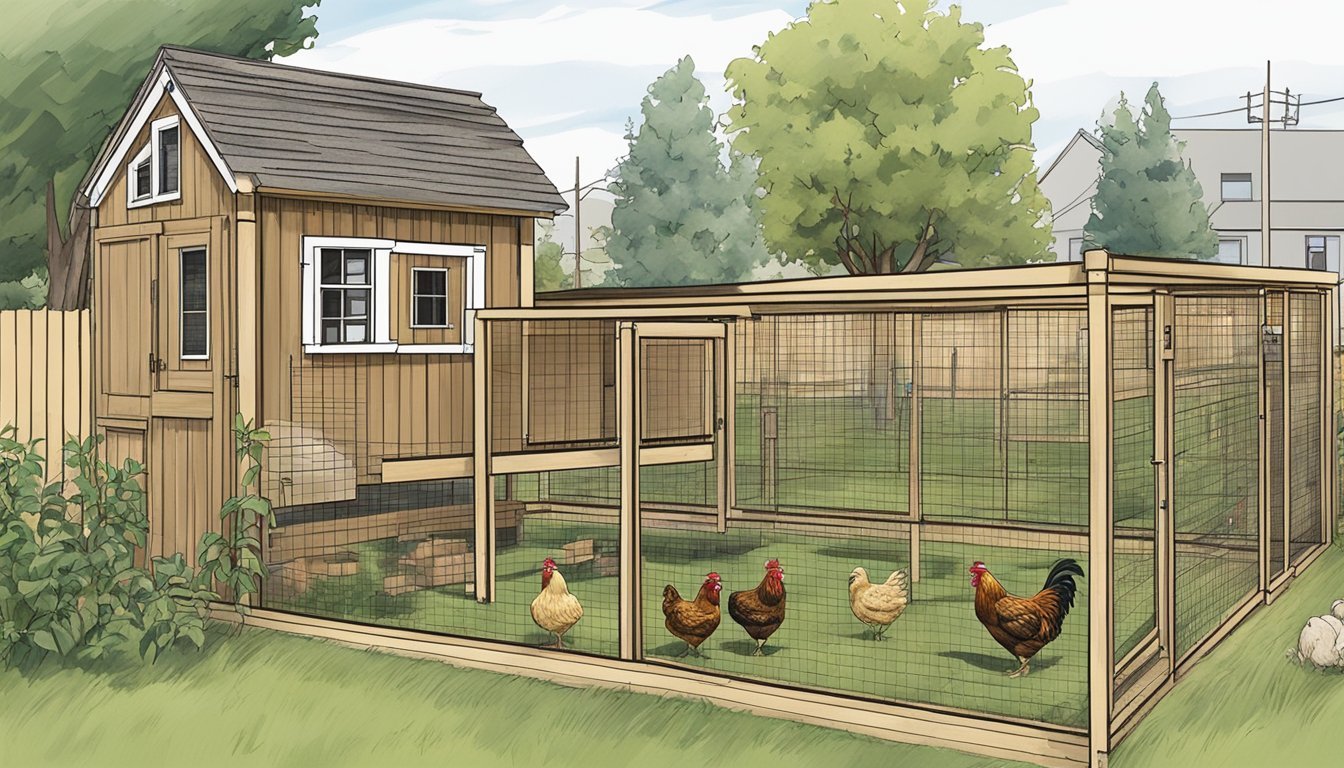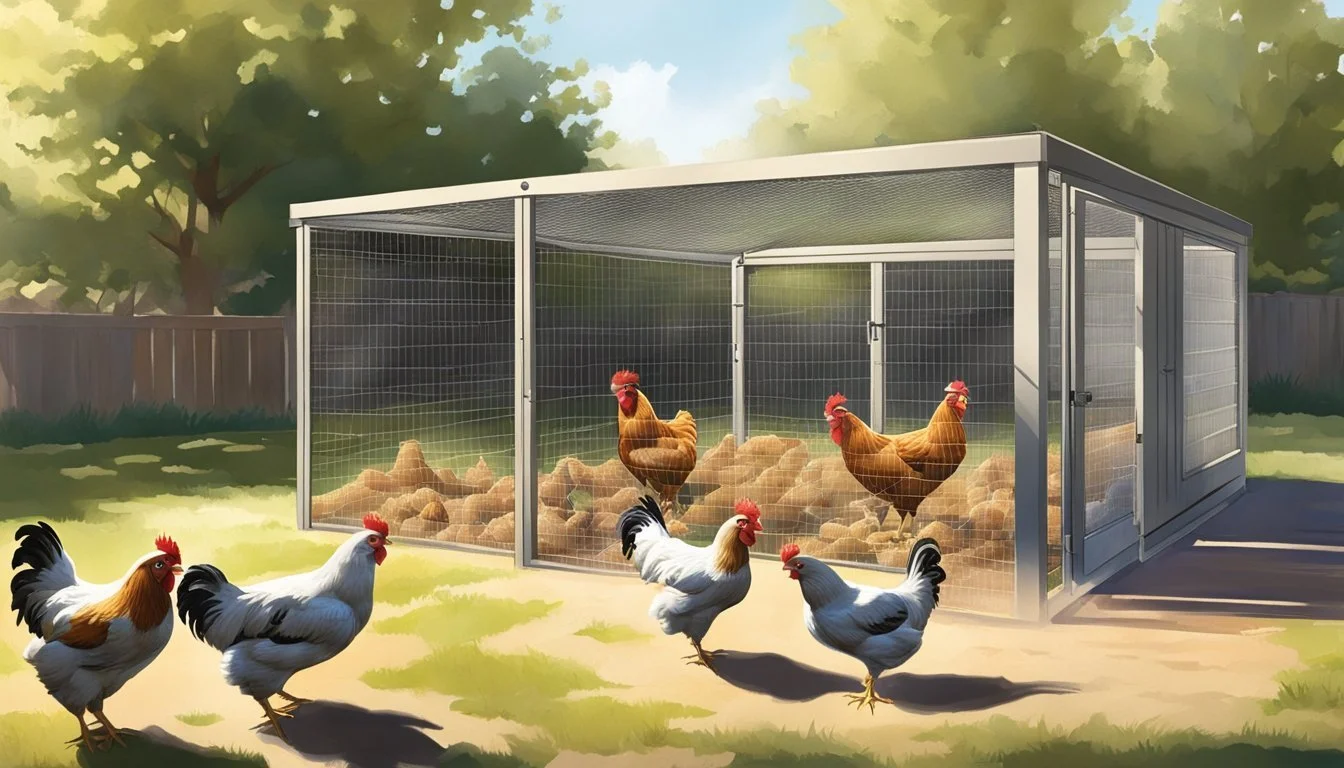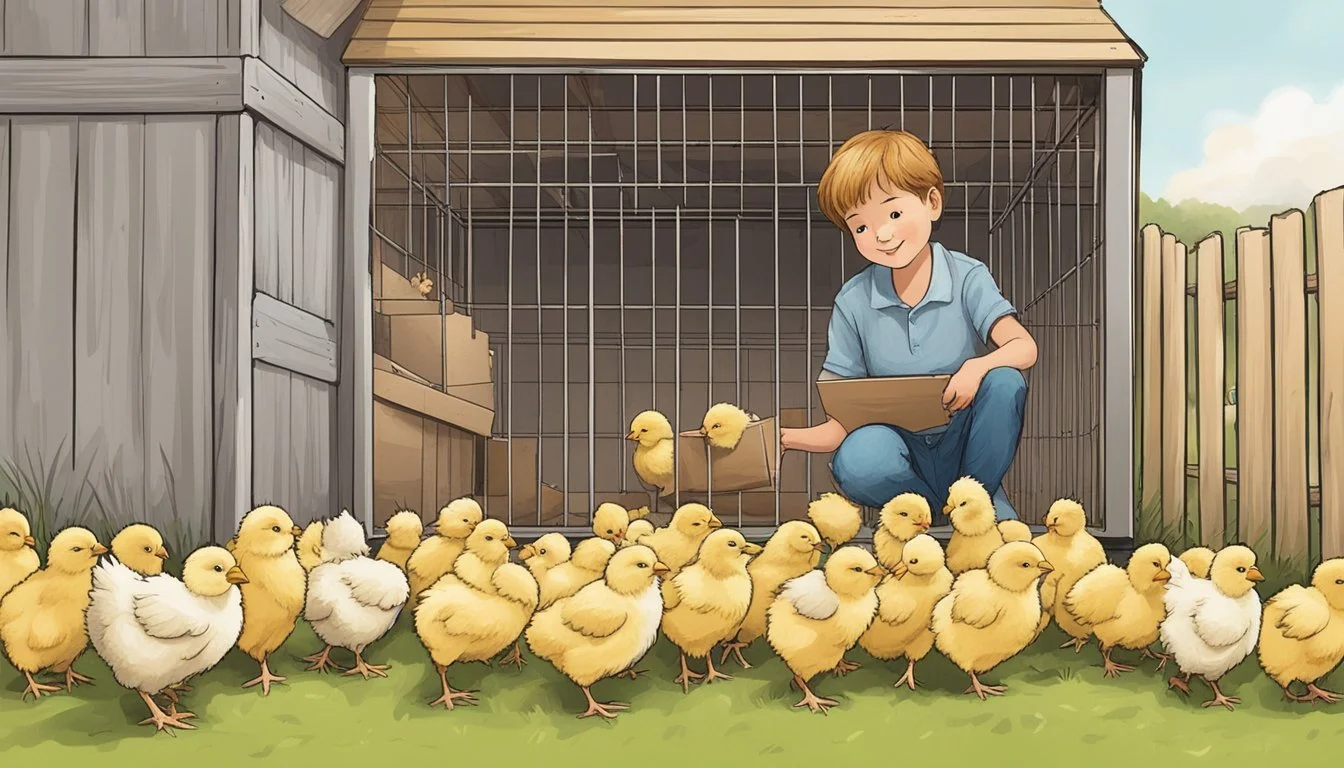Keeping Backyard Chickens in Westminster, CO
Essential Guidelines for Hobbyists
In Westminster, Colorado, the practice of keeping backyard chickens has garnered attention and subsequent regulation adjustments, allowing residents to partake in this self-sustaining hobby. An amendment to local ordinances now permits the keeping of chickens and bees on single-family residential lots. The decision, made by the Westminster City Council, reflects a growing movement towards urban agriculture and sustainability, showcasing the city's support for residents aiming to produce their own food and contribute to local ecology.
The updated ordinance is structured to balance urban living with agricultural practices, placing importance on maintaining harmony within the community. While there is no official limit on the number of chickens a household can keep, the city upholds a rooster prohibition to minimize noise disturbances. Additionally, details such as coop placement and size must adhere to specific regulations, ensuring that the health and safety of both the chickens and the neighborhood are considered.
For those interested in engaging in the keeping of backyard chickens, navigating the rules and guidelines is crucial. Westminster's approach to animal management, which includes regulations for the keeping of poultry, reflects careful planning and a dedication to serving the community's needs. Residents looking to join the backyard chicken movement will find a supportive network in Westminster, as evidenced by local groups and social media platforms where individuals share tips and information.
Understanding Local Regulations
When considering keeping backyard chickens in Westminster, Colorado, it is crucial to be aware of local ordinances, state laws, and any regulations set by homeowners associations. Residents must ensure they comply with these rules to avoid violations and to maintain community standards.
Navigating Westminster's Chicken Ordinance
In Westminster, residents are permitted to keep backyard chickens subject to specific local regulations. The city ordinance clearly states that chickens are allowed, although it does not specify an official limit; common sense and consideration for neighbors should dictate reasonable numbers. Roosters are prohibited to prevent noise complaints. Coop placement is important as well, with size and location guidelines designed to minimize issues with neighboring properties.
Permit: Not explicitly required for chickens.
Coop requirements: Must adhere to certain size and placement regulations.
Noise control: Roosters are banned to avoid disturbances.
Colorado State Laws and Local Variations
While statewide regulations in Colorado provide a framework for keeping backyard chickens, individual municipalities like Westminster have the authority to establish their own, more specific rules. Residents must understand both state laws and local variations to maintain compliance.
Local ordinances take precedence within city limits.
Zoning laws may impact the ability to keep chickens depending on the area within the municipality.
Compliance with Homeowners Associations
Residents living in covenant-controlled communities or areas with active homeowners associations (HOAs) need to review any covenants that might affect their ability to keep chickens. HOAs may have their own set of rules that can restrict or completely prohibit the keeping of backyard chickens, independent of municipal regulations.
Check for any HOA regulations before starting a backyard flock.
Covenants may impose additional restrictions or require special permits.
Planning and Building Your Coop
Building a backyard chicken coop in Westminster, CO requires careful planning to ensure a secure and comfortable environment for chickens.
Choosing a Suitable Location
When selecting a location for a coop, it's essential to choose an area that's dry and elevated to prevent water accumulation and ensure proper drainage. Additionally, the location should offer protection from prevailing winds while being accessible for cleaning and egg collection. Make sure to comply with local Westminster zoning ordinances, maintaining adequate distance from property lines and neighbors' residences.
Coop Design and Space Requirements
A well-designed coop provides adequate space for each chicken to roam comfortably. The general space guideline is 2-3 square feet per chicken inside the coop and 8-10 square feet per chicken in an outside run. The coop should include roosts for perching and nesting boxes — one box for every 3-4 hens is typically recommended. Materials used for construction must be durable and insulating to protect against the Colorado climate.
Ensuring Proper Ventilation and Protection
Ensuring a well-ventilated space is crucial for the health of the chickens. Include vents or windows to allow fresh air flow, while preventing drafts in the roosting areas. To predator-proof your coop, use hardware cloth instead of chicken wire for enclosures, and secure all possible entry points. A sturdy coop with these measures protects against common predators such as foxes, coyotes, and owls.
Caring for Your Chickens
When raising chickens in Westminster, CO, one's commitment to providing proper care is crucial. Their health, egg production, and longevity rely on a robust care regimen involving nutrition, cleanliness, healthcare, and understanding their social habits.
Feeding and Nutrition
Chickens require a balanced diet to ensure proper development and egg production. Starter feed is essential for chicks, as it's high in protein. As they mature, they transition to grower feed, and eventually to layer feed when they begin to lay eggs. Grains, greens, and calcium supplements like oyster shells contribute to a well-rounded diet.
Daily Diet for Chickens:
Morning: Provide a portion of layer feed.
Afternoon: Offer grains and greens for foraging.
Evening: Check feeders and replenish if necessary.
Maintaining Cleanliness and Hygiene
Keeping the chicken coop clean is vital to prevent disease and pests. The coop should be spacious enough to avoid overcrowding and ensure it has proper ventilation. Bedding should be replaced regularly, and droppings removed.
Coop Cleaning Schedule:
Daily: Spot clean droppings and leftovers.
Weekly: Change bedding and sanitize waterers.
Monthly: Deep clean the coop and inspect for mites or lice.
Healthcare and Disease Prevention
Preventative healthcare measures are imperative to maintain a flock's health. Vaccinations may be necessary and consulting with a local veterinarian about a healthcare plan is advised. Regular health checks for signs of distress or illness help catch issues early on.
Checklist for Chicken Health Monitoring:
Behavior and appetite
Feather condition
Respiratory sounds
Daily Routines and Social Needs
Chickens are social creatures and require interaction and routine. They should be let out in the morning to roam or forage and secured in the coop at dusk. Establishing a consistent routine for feeding, cleaning, and health checks keeps chickens content and healthy.
Social Interaction Tips:
Provide space for foraging.
Include perches and nesting areas for comfort.
Incorporate dust baths for natural behavior.
Legal Considerations of Raising Chickens
Residents of Westminster, CO must navigate certain legalities when raising backyard chickens. It is essential they understand permit requirements, limitations on the number of animals, restrictions on slaughtering, and the differentiation between livestock and pets.
Permits and Animal Limits
Westminster requires residents to obtain a permit for keeping backyard chickens. This process includes an application and a one-time fee. The number of chickens allowed is also regulated, with a limit imposed to ensure proper management and space.
Permit Fee: $25.00 (one-time)
Chicken Limit: 6 on smaller residential lots, up to 12 on larger lots
Restrictions on Slaughtering
The city has specific restrictions on slaughtering chickens. It is imperative for chicken owners to adhere to these regulations, which are in place to maintain public health and animal welfare. The details on processing birds for meat are not clearly delineated in the provided results, indicating a need for residents to consult local laws or city guidelines directly.
Understanding Livestock vs. Pet Distinctions
In Westminster, the distinction between livestock and pets is recognized in the legal framework. Chickens are generally considered livestock due to their role in egg production and potential use as meat. However, the manner in which they are housed and cared for can affect their status. Stringent health and safety regulations apply to ensure their welfare, mirroring the care typically accorded to pets.
Integrating Chickens into the Community
Integrating backyard chickens into the Westminster community requires consideration and effort. The community's concerns should be recognized, and the role of chickens as beneficial pets and educational resources should be emphasized.
Addressing Neighbor Concerns
Neighbors may have valid concerns regarding the keeping of backyard chickens. These concerns often include noise, odors, and the potential for decreased property values.
Noise: Properly managed hens typically make less noise than household pets such as dogs.
Odors: Regular maintenance and proper coop placement can mitigate odors from chicken enclosures.
Property Values: There is no concrete evidence suggesting that backyard chickens negatively affect property values.
Addressing these points with facts and maintaining open communication can foster neighborhood acceptance and cooperation.
Chickens as Pets and Educational Resources
Backyard chickens often serve as both pets and as an educational resource within the community.
Pets: Chickens can be social animals that provide companionship and stress relief. Selecting docile breeds enhances their suitability as family pets.
Educational: Community members, especially children, can learn about animal husbandry, ecology, and sustainable living through interactions with chickens.
Ensuring chickens are well cared for and integrating educational programs can highlight the value chickens add to the community. This approach can help in weaving backyard chickens into the fabric of neighborhood life in Westminster, CO.
Supplemental Practices
In this section, the readers will be introduced to the specific practices of maintaining free-range environments versus enclosed spaces for chickens, and the considerations for harmonious coexistence with bees and other local wildlife in Westminster, CO.
Free-Range vs. Enclosed Spaces
Championing the health and happiness of backyard chickens can be supported through providing free-range areas or enclosed spaces, each with its own set of protocols. Free-range environments offer chickens the freedom to explore, forage, and exhibit natural behaviors, which can contribute to their well-being. However, it's essential to ensure the presence of safe boundaries to protect them from predators and to prevent escape.
Conversely, enclosed spaces, such as chicken coops or runs, provide protection from the elements and predators. They demand critical considerations:
Adequate space per chicken (typically 4 square feet inside a coop)
Sufficient roaming area (10 square feet in an outdoor run)
Secure fencing to deter predators
Regular maintenance to uphold hygienic conditions
Coexisting with Bees and Other Wildlife
When chickens share a habitat with bees, synergy is possible as each plays a role in a healthy backyard ecosystem. Chickens can benefit gardens by controlling pests and providing fertilizer, while bees are vital pollinators contributing to plant growth and productivity. To facilitate a mutually beneficial relationship, keepers should:
Strategically place beehives away from chicken coops to reduce stress for both bees and chickens.
Ensure ample water sources for both bees and chickens, with separate access points to deter competition.
Monitor the interaction between chickens and bees, as curious chickens might disturb beehives.
Acknowledging local wildlife is pivotal in backyard chicken practices. Enclosures must be designed to thwart access by wildlife that may pose a threat to chickens or compete for resources. This involves:
Robust fencing material
Covered runs to prevent aerial predators
Ground barriers to discourage digging animals
By adhering to these supplemental practices, keepers ensure a balanced backyard ecosystem in Westminster, CO, optimizing the living conditions for chickens as well as the well-being of bees and other wildlife.
Acquiring Chickens and Starting Your Flock
When setting up a backyard flock in Westminster, CO, key considerations include selecting suitable breeds for the climate and securing healthy birds from reliable sources.
Selecting the Right Chicken Breeds
Selecting the right chicken breed is crucial for a successful backyard flock. In Westminster, CO, one must consider the breed's cold tolerance due to the varied climate. Hardy breeds suitable for the area include:
Plymouth Rock: Known for its docility and hardiness in cold weather.
Rhode Island Red: A robust breed that lays well even in colder months.
Australorp: This breed is noted for its high egg production and ability to withstand cooler temperatures.
Purchasing from Hatcheries or Local Sources
Chickens can be purchased as chicks from hatcheries or adult birds from local sources. When buying chicks from a hatchery, ensure it is reputable, can provide vaccination records, and adheres to ethical breeding practices. Local sources such as farms or backyard chicken enthusiasts are beneficial for acquiring adult hens or roosters. They offer the advantage of seeing the bird's living conditions and health firsthand. However, it's essential to quarantine new chickens to prevent the spread of diseases to an existing flock.









